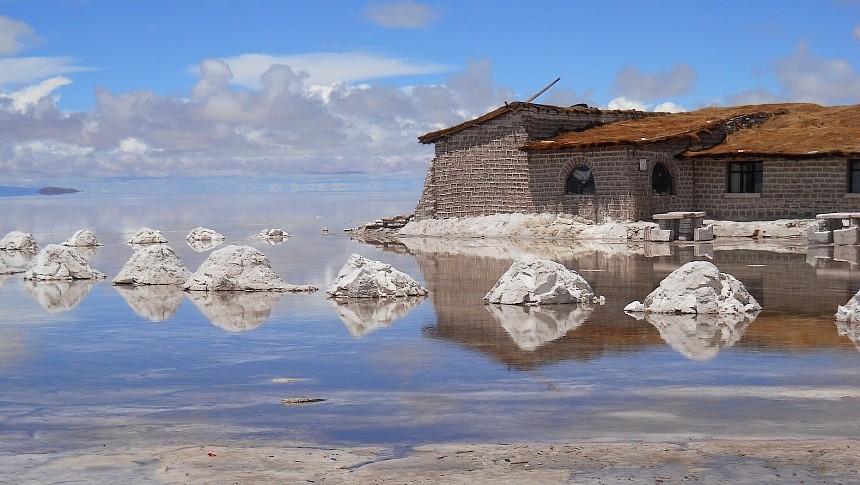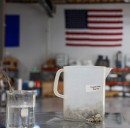The electric vehicle industry officially debuted after Tesla released its first electric vehicle in 2008 – the Tesla Roadster. Ever since the struggle for global dominance in the market ensued, the stakes are getting tougher as automakers scramble for market share and resources.
The switch to electric vehicles is quite puzzling. Initially, it seemed like a collective global effort to fight climate change. Still, as the industry progresses, it's beginning to feel like powerplay between global industry leaders and the Chinese government.
Going green might have been the best solution to prevent pollution in cities and reduce the use of declining fossil fuels. However, the raw materials required for the development of electric vehicles are getting scarce.
During the global pandemic, automakers suffered the brunt of a worldwide chip shortage, leading to supply chain issues. Several years after the pandemic, industry insiders are warning there could be another shortage of lithium – a raw material used to develop electric car batteries.
Threatened by the crippling shortage, car manufacturers rushing to lock in supplies of the ' white gold' in a politically and environmentally burdened competition from China, Nevada, to Chile.
Ideally, an auto manufacturer would contract a vendor to source raw materials required for vehicle production, including copper. But the tides are changing after General Motors and the parent company of BYD in China did the unusual and went straight to the source, obtaining stakes in lithium miners.
Other automakers are securing themselves by investing in lithium refining or enterprises that recycle lithium from used batteries.
With the switch to EV production deadline getting closer, a shortage of lithium supplies would be crippling for car manufacturers required to ramp up tens of millions of car sales every year.
In January, General Motors announced plans to make an equity investment of $650 with Lithium Americas to extract lithium at the Thackers Pass mine in Nevada.
To achieve its ambitious EV production targets for 2023 and beyond, the American automaker will set up four battery production plants (in partnership with LG) and invest in North America's biggest lithium mining venture.
Volkswagen AG and Honda are also working to reduce their need for freshly mined lithium by forming recycling ventures. In March, Honda struck a deal with American battery recycling specialist Ascend Elements to secure a steady supply of recycled lithium-ion batteries for its electric fleet in the US.
Even though the worldwide output of lithium is on track to triple in the next ten years, the surging sales and demand for electric vehicles (which rose 55% in 2022) threaten to outrun its output.
Additionally, the uncertainty of the precious ore is emerging as another conflict in strained United States-China relations, AP News reported.
Other lithium-producing countries, including Chile, Indonesia, and Zimbabwe, are maximizing their returns on deposits of the industry-precious minerals requiring miners to invest in refining and processing before they can export.
Going green might have been the best solution to prevent pollution in cities and reduce the use of declining fossil fuels. However, the raw materials required for the development of electric vehicles are getting scarce.
During the global pandemic, automakers suffered the brunt of a worldwide chip shortage, leading to supply chain issues. Several years after the pandemic, industry insiders are warning there could be another shortage of lithium – a raw material used to develop electric car batteries.
Threatened by the crippling shortage, car manufacturers rushing to lock in supplies of the ' white gold' in a politically and environmentally burdened competition from China, Nevada, to Chile.
Ideally, an auto manufacturer would contract a vendor to source raw materials required for vehicle production, including copper. But the tides are changing after General Motors and the parent company of BYD in China did the unusual and went straight to the source, obtaining stakes in lithium miners.
Other automakers are securing themselves by investing in lithium refining or enterprises that recycle lithium from used batteries.
With the switch to EV production deadline getting closer, a shortage of lithium supplies would be crippling for car manufacturers required to ramp up tens of millions of car sales every year.
In January, General Motors announced plans to make an equity investment of $650 with Lithium Americas to extract lithium at the Thackers Pass mine in Nevada.
To achieve its ambitious EV production targets for 2023 and beyond, the American automaker will set up four battery production plants (in partnership with LG) and invest in North America's biggest lithium mining venture.
Volkswagen AG and Honda are also working to reduce their need for freshly mined lithium by forming recycling ventures. In March, Honda struck a deal with American battery recycling specialist Ascend Elements to secure a steady supply of recycled lithium-ion batteries for its electric fleet in the US.
Even though the worldwide output of lithium is on track to triple in the next ten years, the surging sales and demand for electric vehicles (which rose 55% in 2022) threaten to outrun its output.
Additionally, the uncertainty of the precious ore is emerging as another conflict in strained United States-China relations, AP News reported.
Other lithium-producing countries, including Chile, Indonesia, and Zimbabwe, are maximizing their returns on deposits of the industry-precious minerals requiring miners to invest in refining and processing before they can export.









